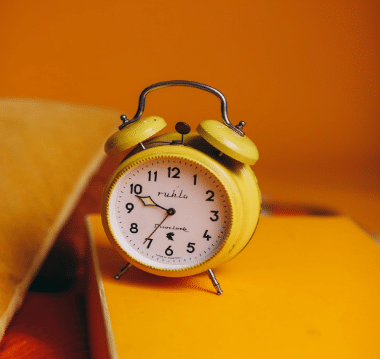 Sleep is closely connected to mental health in every way. Being deprived of rest can amplify your mental health struggles. Anxiety, addiction, depression, PTSD, and bipolar disorder are all exacerbated by lack of sleep.
Sleep is closely connected to mental health in every way. Being deprived of rest can amplify your mental health struggles. Anxiety, addiction, depression, PTSD, and bipolar disorder are all exacerbated by lack of sleep.
From the way it makes you feel to the physiological processes that happen on a holistic scale, your sleep is a critical part of you. Without adequate rest, you may struggle to hold on to new information or recall familiar information. When we feel out of touch with the memories and moments that connect us to our sense of identity, it can perpetuate feelings of frustration and anxiety that may have been present prior to the sleeplessness.
Before you can act on improving your sleep, let’s take a look at how sleep deprivation may be showing up in our mental (and physical) health.
Feeling the Fog & Other Symptoms of Sleep Deprivation
During the waking hours when you’ve gotten less than ideal sleep, you may feel fuzzy or a step behind the rest of the world. You’ll be wasting precious energy reserves wading through the roadblocks of exhaustion when you’re not getting enough rest and it may lead to feelings of frustration, irritability, or broken concentration. Those foggy frustrations are just the beginning of the relationship sleep has with mental and physical health symptoms.
| If you’re experiencing sleep deprivation, you may be impacted by | |
|
|
Sound familiar? It doesn’t have to be.
Sleep deprivation impacts the lives and minds of each of us in different but indelible ways. We want to help you understand what’s happening in your mind when the sandman won’t bestow you with quality sleep, and how you can be your own bedtime hero.
Let’s take a look together at how sleep deprivation and mental health are related so you can improve both.
Factors Related to Sleep Deprivation & Mental Health
Quality and quantity
It’s not just the amount of sleep you get that’s tied to your mental health. The quality matters too. When you sleep poorly, you’ll feel every struggle more deeply, amplifying anxiety and deepening depression on the days those snoozing minutes just don’t add up.
Less sleep means more mental health distress, and more mental health distress is likely to keep you awake at night. The compounding nature of the relationship between sleep and mental health is an ouroboros that’s consuming your energy in so many ways.
Environment
Consider the way you’re sleeping and how much you’re allowing yourself the space to get quality rest. Turn down the tone of the world in the hours before you go to sleep. Give yourself a barrier of relaxation and choose an activity that promotes feelings of calm for you. Reduce your exposure to noise and lower the lights but don’t move toward the bedroom until you’re ready to commit to sleep.
If you can’t sleep, it’s important to get out of bed and choose another activity until you feel tired again before returning to bed. Laying in bed awake restarts your circadian rhythm and you may struggle to fully relax, creating a playground for awake thoughts during sleeping hours.
Routine
 When it comes to healthy sleep, routine reigns supreme. Develop a plan and schedule you can commit to then stick to it. Think about what makes you feel sleepy, or prepared for sleep. Maybe it’s yoga or a breathing routine to calm your body, or a playlist that soothes the busy thoughts in your mind. From there, consider how you can incorporate the self-care and daily preparation you need to do. Think of it as a route that you take to sleep- your calm commute if you will. This routine will signal your body that it’s time for sleep, and as time goes on, it will be easier to shift into rest once it begins.
When it comes to healthy sleep, routine reigns supreme. Develop a plan and schedule you can commit to then stick to it. Think about what makes you feel sleepy, or prepared for sleep. Maybe it’s yoga or a breathing routine to calm your body, or a playlist that soothes the busy thoughts in your mind. From there, consider how you can incorporate the self-care and daily preparation you need to do. Think of it as a route that you take to sleep- your calm commute if you will. This routine will signal your body that it’s time for sleep, and as time goes on, it will be easier to shift into rest once it begins.
Napping for better sleep
Limiting naps or long lie-ins can be helpful in filling your sleep deficit. That doesn’t mean Naps of 15-20 minutes are great for a refresh that doesn’t leave you feeling tired after, and naps of around 90 minutes give you enough time to complete an entire sleep cycle. The struggle comes when you nap in that interim period- naps of 30-80 minutes can be disruptive to your sleep patterns and establish broken cycles that you struggle to regulate in nightly sleep. Those kinds of naps should be avoided for a more blissful bedtime.

